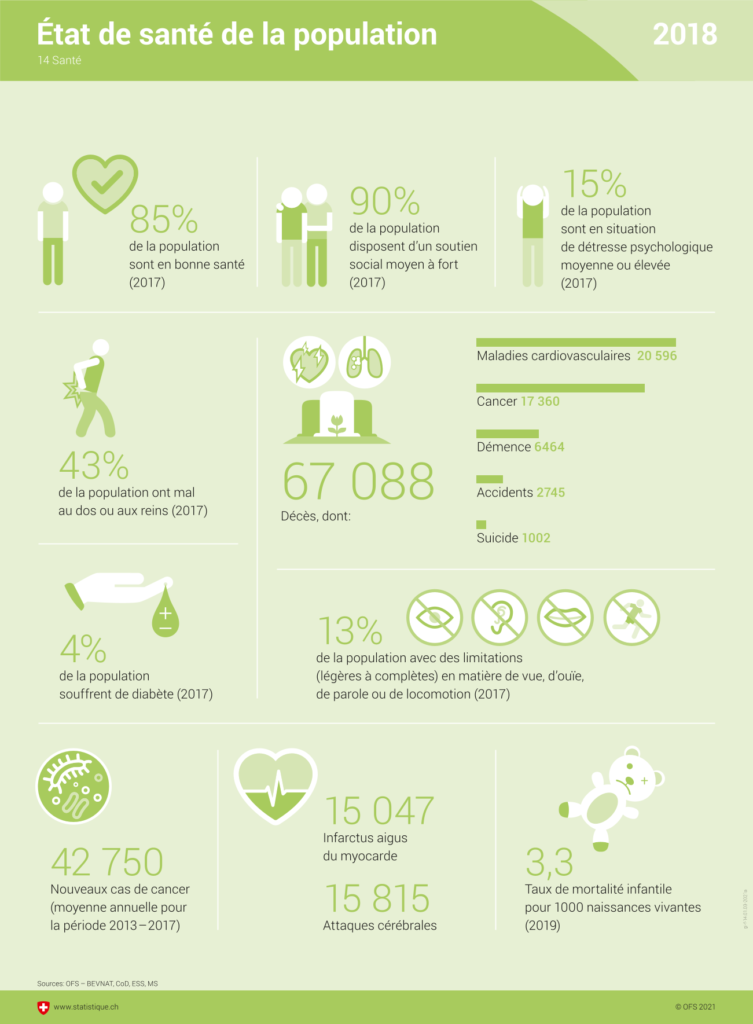According to the latest study published in 2018 by the Swiss Federal Office of Health, 85% of the population is in “good health” (see graph below). The quotation marks are in order, because what does “being healthy” mean? As is often the case with studies, the figures do not correspond perfectly to reality. We wanted to find out more about this reality by questioning those who are on the front line: doctors. We met with Dr Helder Borges, a general internist from Geneva who has been practicing in Sion for many years, who tells us about “his” reality.
▶️ 85% of the Swiss population is said to be in good health, what do you think of this figure?
I would say that this figure needs to be qualified. There is indeed an important difference between the state of health and the state of well-being.
Health status generally only takes into account your physical state, whereas wellness is more encompassing with psychological, mental, etc. indicators included in the equation. If I ask you, you’ll probably say you’re healthy, but when you narrow it down a bit, the answer is often more nuanced.
▶️ There has been a lot of talk about people becoming more aware of the importance of health and wellness after the Covid period. Is this really/still the case today?
Unfortunately… no. I would say that like any other habit, the ones we had before Covid quickly came back, at least that is what I see in my patients. With one exception though, the older patients, who have really become aware of the concept of “health” and the risk involved. They are almost the only ones who wear the mask, and continue to be careful.
Afterwards, in a broader sense, if we stick to well-being such as practicing sports, eating better, a better work-life balance, etc., this remains a certain “luxury” left to the rather upper middle classes, but even in this segment of the population the jump has not been general either.
In short, there have been no profound changes in post-Covid mentalities.
▶️ What is the greatest “evil/problem” in the health and well-being of the Swiss today?
We talk a lot about back pain as the disease of the century, but I would add to this the stress and anxiety that are found today in almost 50% of consultations.
If I had to categorize it, I would say that social and economic problems are more and more the reason for consulting a doctor, with consequences that are sometimes only mental, or both mental and physical (back pain is one of them!).
These problems can be linked to worries at work (mobbing, overload, etc.) and/or worries in personal life (divorce, mental burden, etc.) and generate stress and anguish in patients that push them to come and see their doctor.
This is why we cannot only talk about the state of health, but also take into account the state of well-being of the Swiss. Because the two are increasingly linked.
Picture : https://www.bfs.admin.ch/bfs/en/home/statistics/health/state-health.html
___________
Note: A nationwide Swiss health survey is planned to be conducted from 2023 onwards. Its objective is to provide information on the health status of the Swiss population in order to better understand the effect of the environment, exposure to certain chemicals, lifestyle, infectious diseases (e.g. Covid-19) and certain predispositions on health. Information here: Health Study – 2023










